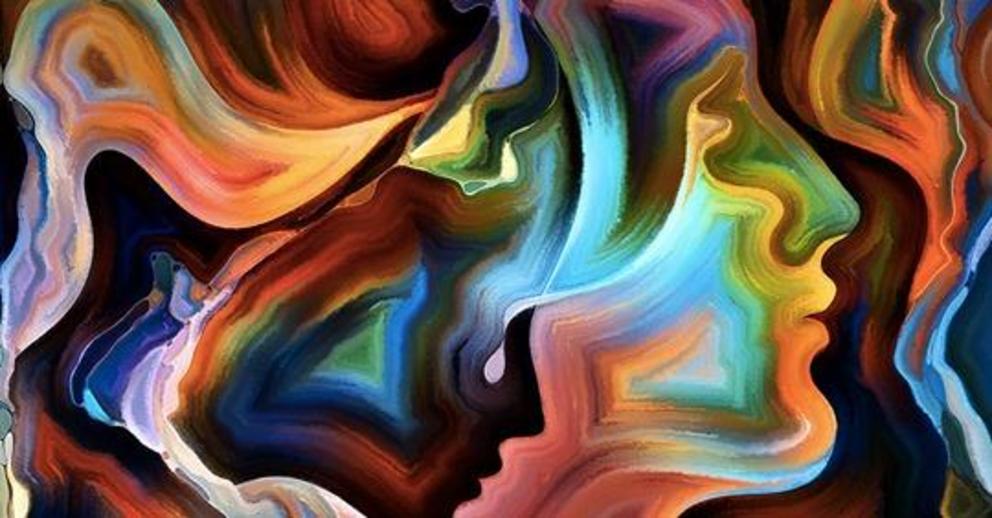Profound experiences linked to mental health benefits
Majority of survey respondents attributed lasting positive changes in their psychological health—including life satisfaction, purpose, and meaning—even decades after initially experiencing 'God' or 'ultimate reality,' whether that experience was spontaneous or associated with the consumption of psychedelic substances
In a survey of thousands of people who reported having experienced personal encounters with God, Johns Hopkins researchers report that more than two-thirds of self-identified atheists shed that label after their encounter. Moreover, the researchers say, a majority of respondents attributed lasting positive changes in their psychological health—e.g., life satisfaction, purpose, and meaning—even decades after their initial experience.
The findings, published online in PLOS One, add to evidence that such deeply meaningful experiences may have healing properties, the researchers say.
The study was designed to systematically compare reports of spontaneous God encounter experiences with those associated with the consumption of psychedelic substances such as psilocybin-containing mushrooms or the Amazonian brew ayahuasca, both of which have been associated with triggering religious experiences.
"Although modern Western medicine doesn't typically consider 'spiritual' or 'religious' experiences as one of the tools in the arsenal against sickness, our findings suggest that these encounters often lead to improvements in mental health."
Roland Griffiths - Professor of psychiatry and behavioral sciences
"Experiences that people describe as encounters with God or a representative of God have been reported for thousands of years, and they likely form the basis of many of the world's religions," says lead researcher Roland Griffiths, professor of psychiatry and behavioral sciences at the Johns Hopkins University School of Medicine. "And although modern Western medicine doesn't typically consider 'spiritual' or 'religious' experiences as one of the tools in the arsenal against sickness, our findings suggest that these encounters often lead to improvements in mental health."
For the new study, scientists collected data from 4,285 people from around the world who responded to online advertisements to complete one of two 50-minute online surveys about God encounter experiences. The surveys asked participants to recall their single most memorable encounter experience with the "God of their understanding," a "higher power," "ultimate reality," or "an aspect or representative of God, such as an angel." They also asked how respondents felt about their experience and whether and how it changed their lives.
Of the total participants, 809 were those who responded to the non-drug survey, whereas 3,476 responded to the psychedelics survey.
About 75 percent of respondents in both the non-drug and psychedelics groups rated their "God encounter" experience as among the most meaningful and spiritually significant in their lifetime, and both groups attributed to it positive changes in life satisfaction, purpose, and meaning. Most participants reported vivid memories of the encounter experience, which frequently involved communicating with an entity having the attributes of:
- consciousness (approximately 70 percent)
- benevolence (approximately 75 percent)
- intelligence (approximately 80 percent)
- sacredness (approximately 75 percent)
- eternal existence (approximately 70 percent)
Although both groups reported a decreased fear of death, 70 percent of participants in the psychedelics group reported this change, compared with 57 percent among non-drug respondents. In both groups, about 15 percent of the respondents said their experience was the most psychologically challenging of their lives.
The most common psychedelics reported to have been associated with "God" encounters were:
- Psilocybin, or "magic" mushrooms (1,184 participants)
- LSD (1,251)
- Ayahuasca, a plant-based brew originating with indigenous cultures in Latin America (435)
- DMT, a naturally occurring substance found in certain plants and animals (606)
Griffiths, who has researched psychedelic drugs for nearly two decades, cautions that the study relied on self-reported responses to a questionnaire, a method that carries substantial possibilities for biased or inaccurate responses. He and his team don't advocate that people use hallucinogenic substances on their own. In addition, says Griffiths, the study makes no determination about the existence, or nonexistence of God.
"We doubt that any science can definitively settle this point either way," he says.
For future studies, Griffiths said his team would like to explore what factors predispose someone to having such a memorable and life-altering perceived encounter, and they would like to see what happens in the brain during the experience. His team is hopeful that, one day, psilocybin may be developed as a drug to use in therapeutic settings under the care of a trained guide.
"Continuing to explore these experiences may provide new insights into religious and spiritual beliefs that have been integral to shaping human culture since time immemorial," says Griffiths.

